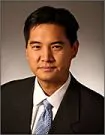A decision is expected shortly in the highly publicized so-called confidential witness "scandal" involving the Robbins Geller Rudman & Dowd law firm. Judge Suzanne B. Conlon of the United States District Court, Northern District of Illinois, will decide whether to impose sanctions on the plaintiffs' firm for its conduct regarding a confidential witness in the City of Livonia Employees' Retirement System v. Boeing Company case, No. 1:09-cv-07143 (N.D. Ill.). The decision could have a lasting impact over the use of confidential witnesses in securities fraud complaints.
Judge Conlon will decide this matter following the Seventh Circuit's remand in late March 2013 on the narrow issue of whether to impose Rule 11 sanctions for (1) providing multiple assurances to the court that the confidential source in their complaint was reliable even though none of the lawyers had spoken to the source or (2) failing to investigate after plaintiffs' investigators expressed qualms about the confidential source. (Previous blog post here). In remanding the case, the Seventh Circuit ruled that making "representations in a filing that are not grounded in an inquiry reasonable under the circumstance or are unlikely to have evidentiary support after a reasonable opportunity for further investigation or discovery violate Rule 11." City of Livonia Empls.' Ret. Sys. v. Boeing Co., 711 F.3d 754, 762 (7th Cir. 2013).
This scandal first arose when plaintiffs alleged that Boeing misled investors about the production schedule for its 787 Dreamliner plane, whose first flight was delayed for years. Robbins Geller filed its first complaint against Boeing based on publicly available information. But after Boeing successfully defeated that complaint through a motion to dismiss, the firm hired investigators to find sources with knowledge about the alleged fraud in the production schedule for the 787 Dreamliner. These investigators contacted a confidential source, Mr. Singh, who claimed that he worked for Boeing during the alleged time frame and provided the investigators information regarding the 787 Dreamliner. The investigators, however, discovered that a few leads Mr. Singh provided were false or misleading. When the investigators attempted to contact Mr. Singh again, he refused to participate or help plaintiffs in their case. Nevertheless, plaintiffs filed a Second Amended Complaint ("SAC") relying on the information Mr. Singh had allegedly provided.
Boeing moved to dismiss the SAC, and during argument and briefing, the Robbins Geller lawyers represented that they had a reliable confidential witness who was in an ideal position to know about the purported fraud firsthand, who had smoking gun evidence, and whose information alone would satisfy the Reform Act's pleading requirements. The lawyers also claimed that it had verified the information with Mr. Singh twice before filing the SAC. Relying heavily on counsel's representations about its confidential witness, the court denied Boeing's motion to dismiss.
However, as the case progressed, investigation and discovery revealed the following facts: Mr. Singh was never actually a Boeing employee, but rather worked for an independent contractor; he was not a structural analyst or "chief engineer" for Boeing, but rather a low-level contractor working on an entirely different plane months after the production of the 787 Dreamliner; he had no access to any files regarding the 787 Dreamliner; and he had never verified any information in the SAC before plaintiffs filed it. Moreover, after Boeing noticed Mr. Singh for deposition, he repudiated all of the claims that Robbins Geller attributed to him.
Can Robbins Geller overcome these Rule 11 sanctions?
In response to potential Rule 11 sanctions, the plaintiffs' lawyers have characterized the issue as whether the allegations relating to the confidential witness were utterly lacking support at the time plaintiffs filed the complaints. Robbins Geller has contended that Mr. Singh got "cold feet" and changed his story. Thus, at the time plaintiffs filed the complaints, the allegations were supported by specific information obtained by experienced outside investigators who interviewed Mr. Singh.
The firm has further argued that Mr. Singh's story changed after he met with the FBI regarding the possible disclosure of Boeing's proprietary information and he was subpoenaed to be deposed by Boeing. As evidence to support their argument, the plaintiffs' lawyers point to numerous emails between Mr. Singh and Boeing officials, including one in which Mr. Singh claimed in his resume to be a "chief engineer" at Boeing who was responsible for the 787 Dreamliner, similar to the story he originally told plaintiffs' investigators.
The lawyers also refuted Boeing's argument that they should be sanctioned because their conduct is similar to the firm's conduct in other securities cases involving confidential witnesses. The Robbins Geller firm noted that it has never been sanctioned for its conduct in any of the cases Boeing identified.
Ultimately, the crux of Robbins Geller's argument is that Rule 11 sanctions should be determined by what counsel knew at the time the complaint was filed, not what was subsequently learned in discovery. Robbins Geller has argued that there is a reasonable dispute as to whether their conduct warrants Rule 11 sanctions.
Nonetheless, if sanctions are awarded against the plaintiffs' lawyers, this case would likely have a significant effect in how plaintiffs' firms use confidential witnesses in drafting complaints and could encourage judges to allow early discovery of confidential witnesses before determining the sufficiency of the pleadings.
The content of this article is intended to provide a general guide to the subject matter. Specialist advice should be sought about your specific circumstances.



